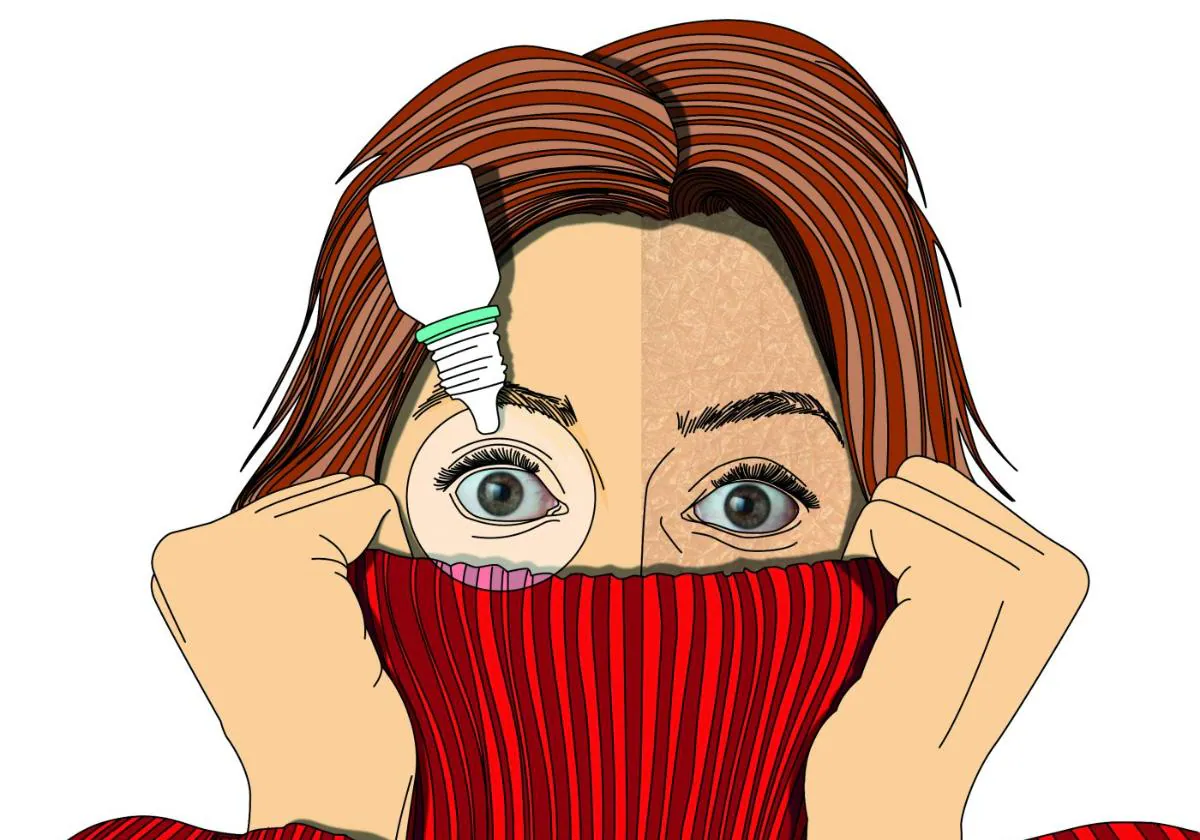Taking care of your eyes and skin in winter
Wind, cold and heating affect your health and multiply the feeling of dryness and itching
Carmen Barreiro
Madrid
Friday, 5 January 2024, 18:13
In the summer months we are constantly being told how we should protect our skin and even our eyes to avoid not just the dreaded sunburn, but also the appearance of spots, allergic reactions, bites and discomfort from salty seawater or chlorine in the swimming pool... However, when the temperatures drop, we forget our skin. "People stop asking for advice," says dermatologist Ana Molina, who stresses the importance of dermatological and ophthalmological care in winter as well.
"The cold, wind, rain, heating and constant changes in temperature affect both the skin and the eyes, which tend to react to all this external aggression with a feeling of dryness, tightness, burning or itching," specialists agree. Here are some recommendations for taking care of these two important organs during the cold months.
Sunglasses and humidifiers
In the case of eye health, "cold weather has a direct impact on the eyes. In fact, winter is the worst season for people with dry eyes. Low temperatures and lower humidity increase the evaporation of the tear film that coats and protects the eye, which is essential for keeping its surface soft and free of irritation. This dryness can be especially uncomfortable in places with central heating, as the hot, dry air inside buildings can cause additional discomfort," explains Elena Barberan, head of eye health services at General Óptica.
Wind doesn't help much either. "It acts on the eyes in a similar way to cold, as it also accelerates the evaporation of tears, which often causes irritation and redness. If dust particles or allergens are carried on top of this, the feeling of discomfort is made worse," adds the optician-optometrist. For their part, people who live in places where it regularly snows and winter sports enthusiasts should protect their eyes from ultraviolet rays with suitable sunglasses. Experts advise using "polarised lenses with full UVA and UVB protection".
To look after our eye health, it is also a good idea to drink water even if you are not thirsty (it helps to maintain tear production) and use humidifiers to combat environmental dryness. If you don't have one, a good alternative is to place a ceramic container with water on the radiators, as well as using artificial tears to help hydrate the cornea. Another expert's advice: blink often and eat a diet rich in vitamins (A, C and E) and antioxidants. "With adequate protection and a small change in habits, we can prevent the eye discomfort typical of winter," says Elena Barberan.
Moisturise
As for the skin, Dr Molina reminds us that "moisturising is to winter what sun cream is to summer, so the key is to moisturise, moisturise and moisturise". The first thing we tend to notice when it is cold is a lot of dryness, especially on the arms and legs. All seasons affect the skin in one way or another, but winter is one of the harshest. As with the eyes, the cold, the wind, the heating... make the skin dry.
"So what do we do? We scratch. And if we scratch, it itches more because rubbing it releases histamine, which is a substance that increases itching, and we enter a vicious circle. The trick is to take advantage of a 'fault' of the skin in our favour to trick it. As it is a bit 'dumb', it finds it difficult to transmit two different sensations at the same time, such as, for example, itching and cold. Thus, if we apply cold when it itches, the itching will stop. And if the cold we apply is a thick, cool moisturising cream, we'll do some real magic," explains Dr Molina.
In addition to dryness and tightness, as the temperature drops "there is also a vasoconstriction effect (the blood vessels become narrower) that hinders blood flow and the microcirculation responsible for supplying blood, oxygen and nutrients to our entire organism, including the skin. For this reason, it is more common for the epidermis to look duller in winter than in spring or summer", explain the specialists at the Pedro Jaén Group's Beauty and Wellness Unit. All these effects are multiplied if the wind is blowing.
One last piece of advice from the specialists: "Beware of sitting near radiators as this encourages the development of spider veins and varicose veins."
